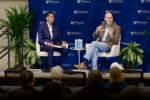
At the 2024 Business & Generative AI Conference, hosted by Wharton Human-AI Research, Stanford’s Erik Brynjolfsson delivered a keynote that challenged business leaders to look beyond the headlines and toward the deeper economic transformations generative AI is already driving. “AI is the most general of all general-purpose technologies,” he said. “It’s changing what we can do, how we work, and who benefits.”…Read More










